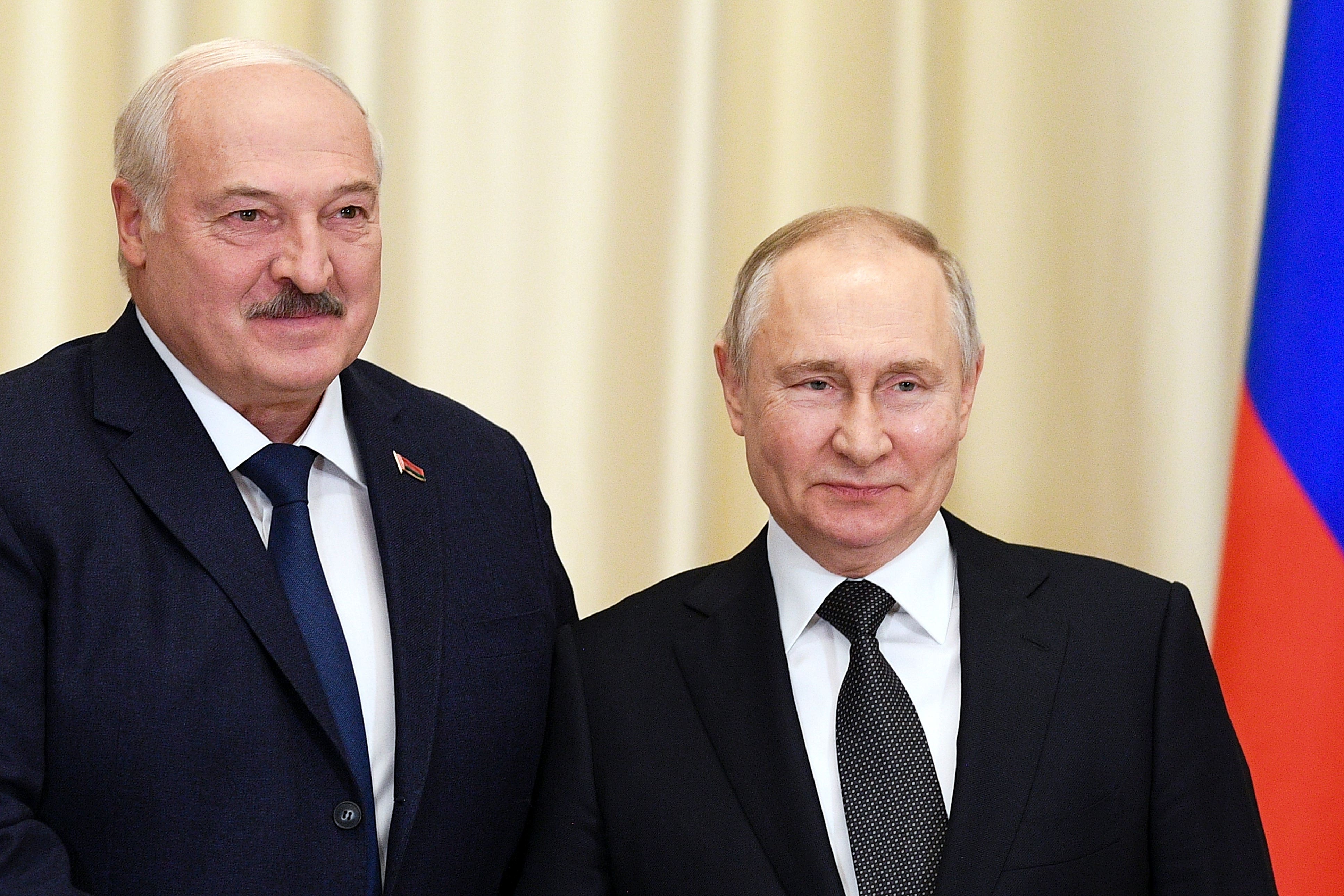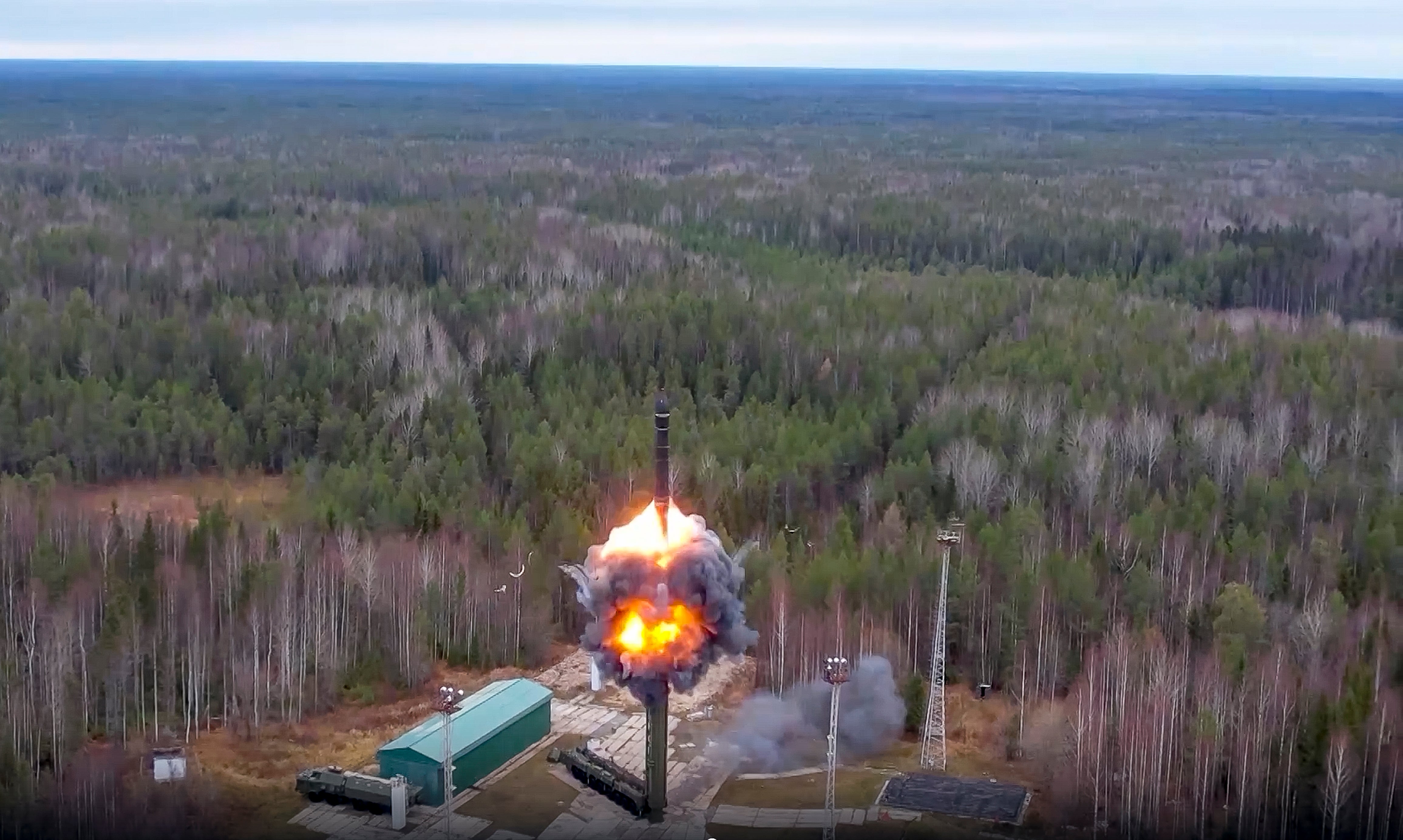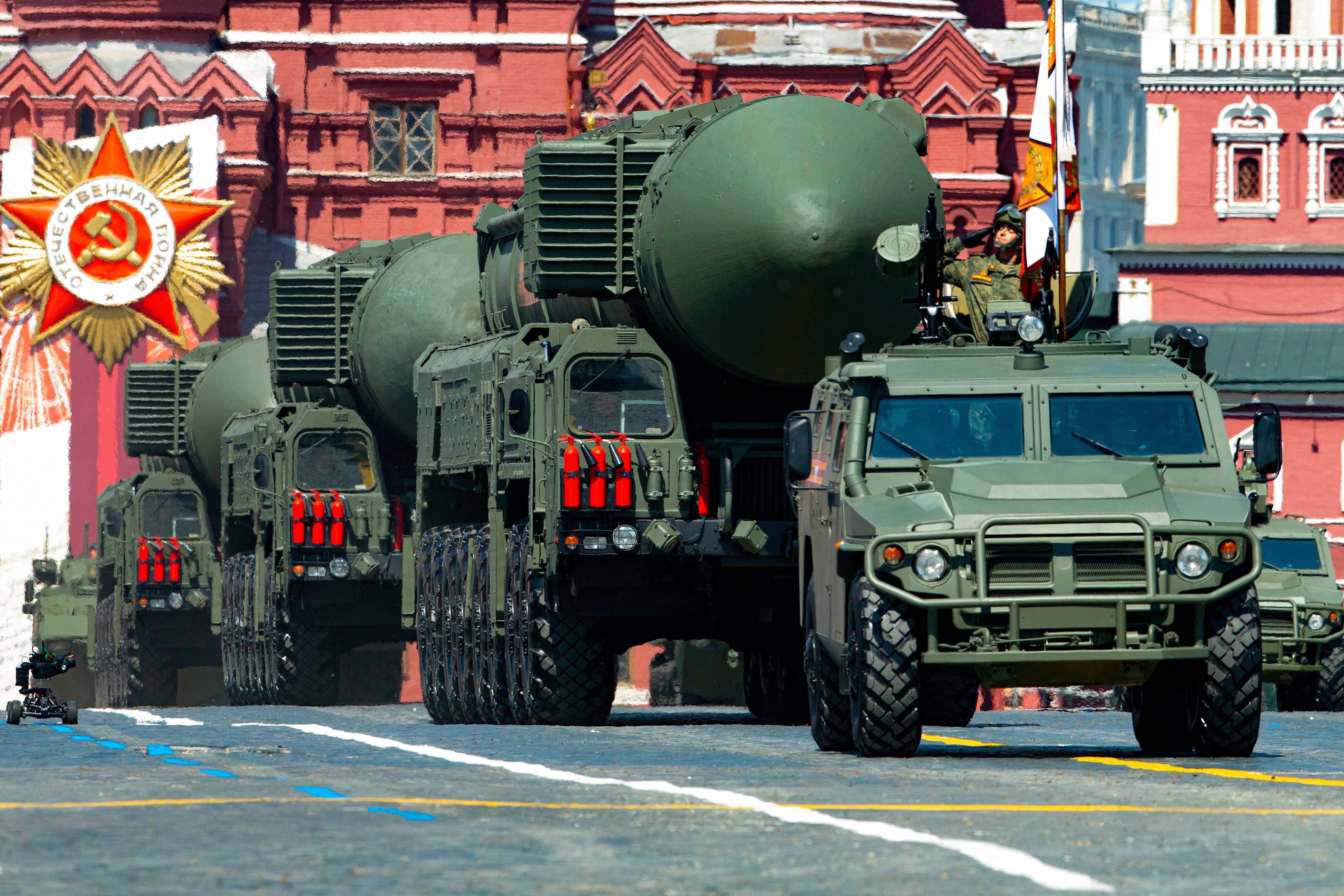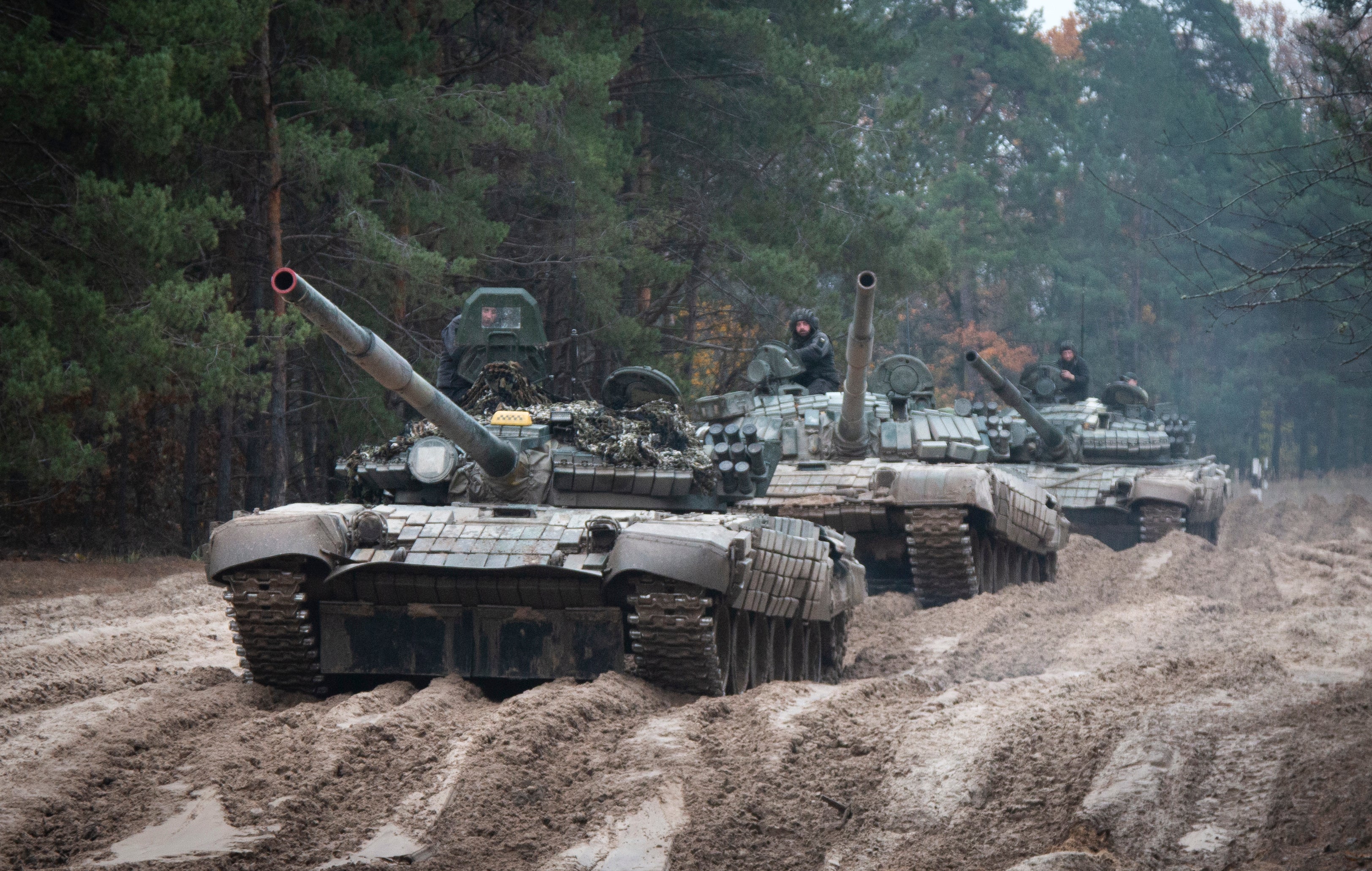Putin says he will move nuclear weapons into Belarus - and blames the UK
Vladimir Putin has announced plans to station tactical nuclear weapons in neighboring ally Belarus
Your support helps us to tell the story
From reproductive rights to climate change to Big Tech, The Independent is on the ground when the story is developing. Whether it's investigating the financials of Elon Musk's pro-Trump PAC or producing our latest documentary, 'The A Word', which shines a light on the American women fighting for reproductive rights, we know how important it is to parse out the facts from the messaging.
At such a critical moment in US history, we need reporters on the ground. Your donation allows us to keep sending journalists to speak to both sides of the story.
The Independent is trusted by Americans across the entire political spectrum. And unlike many other quality news outlets, we choose not to lock Americans out of our reporting and analysis with paywalls. We believe quality journalism should be available to everyone, paid for by those who can afford it.
Your support makes all the difference.Russian president Vladimir Putin has reached an agreement with Belarus to station tactical nuclear weapons on its neighbour’s territory.
Mr Putin said his plan was in direct response to Britain’s decision to provide Ukraine with armor-piercing rounds containing depleted uranium, which Moscow falsely claims contain nuclear components.
Belarusian president Alexander Lukashenko, a staunch ally of Mr Putin and supporter of Russia’s war in Ukraine, has long asked for the weapons on his territory, the Russian president said in an interview on state television.

“There is nothing unusual here either: firstly, the United States has been doing this for decades,” the Russian president said.
“They have long deployed their tactical nuclear weapons on the territory of their allied countries.”
“We agreed that we will do the same - without violating our obligations, I emphasize, without violating our international obligations on the nonproliferation of nuclear weapons,” he added.
The Belarusian army has not formally fought in Ukraine, but Minsk and Moscow have a close military relationship.
Minsk allowed Moscow to use Belarusian territory to send troops into Ukraine last year and the two nations stepped up joint military training.

Oleksiy Danilov, head of Ukraine’s National Security and Defence Council, called it “a step towards internal destabilization of the country” adding it maximizes what he called the level of “negative perception and public rejection” of Russia and Putin in Belarusian society.
“The (K)remlin took Belarus as a nuclear hostage,” he wrote on Twitter.
Washington has played down concerns about Mr Putin’s announcement and the potential for Moscow to use nuclear weapons in the war in Ukraine.
“We have not seen any reason to adjust our own strategic nuclear posture nor any indications Russia is preparing to use a nuclear weapon. We remain committed to the collective defence of the NATO alliance,” a senior U.S. administration official said.

The official noted that Russia and Belarus had been speaking about the transfer of nuclear weapons for some time.
Analysts at the Washington-based Institute for the Study of War (ISW) said that the risk of escalation to nuclear war “remains extremely low”.
“ISW continues to assess that Putin is a risk-averse actor who repeatedly threatens to use nuclear weapons without any intention of following through in order to break Western resolve,” it wrote.
However, the International Campaign to Abolish Nuclear Weapons called Putin’s announcement an extremely dangerous escalation.

“In the context of the war in Ukraine, the likelihood of miscalculation or misinterpretation is extremely high. Sharing nuclear weapons makes the situation much worse and risks catastrophic humanitarian consequences,” it said on Twitter.
Putin’s plan to move tactical nuclear weapons to Belarus comes just days after Dmitry Medvedev, deputy secretary of Russia’s Security Council, warned about the rising threat of nuclear war.
When asked if the threat of nuclear war had receded, he said: “No, it hasn’t decreased, it has grown. Every day when they provide Ukraine with foreign weapons brings the nuclear apocalypse closer.”
The Bulletin of Atomic Scientists estimates that Russia’s current nuclear stockpile consists of approximately 4,477 warheads, of which around 1,588 are strategic warheads that can be deployed on ballistic missiles and at heavy bomber bases, while an approximate additional 977 strategic warheads, along with 1,912 nonstrategic warheads, are held in reserve.


